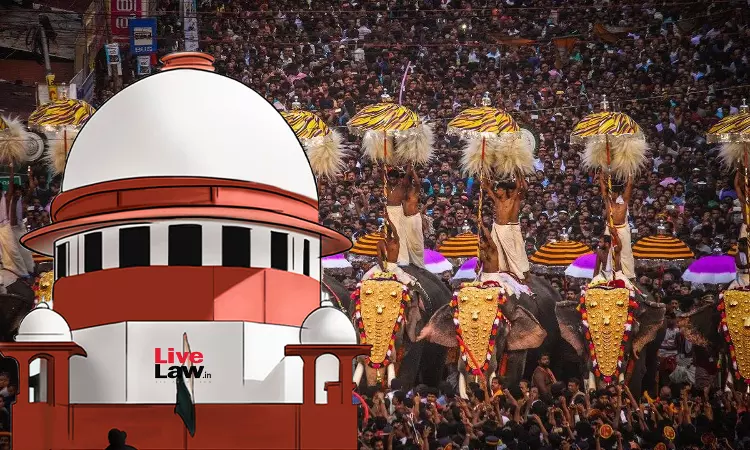The Supreme Court today (December 19) while effectively staying the restrictions imposed by the Kerala High Court dated November 13, including that a minimum distance of 3 meters should be there between elephants during processions in temple festivals, remarked that the High Court should not have exercised suo moto powers and issued directions in "vacuum".The Court said: "If there is some kind...

